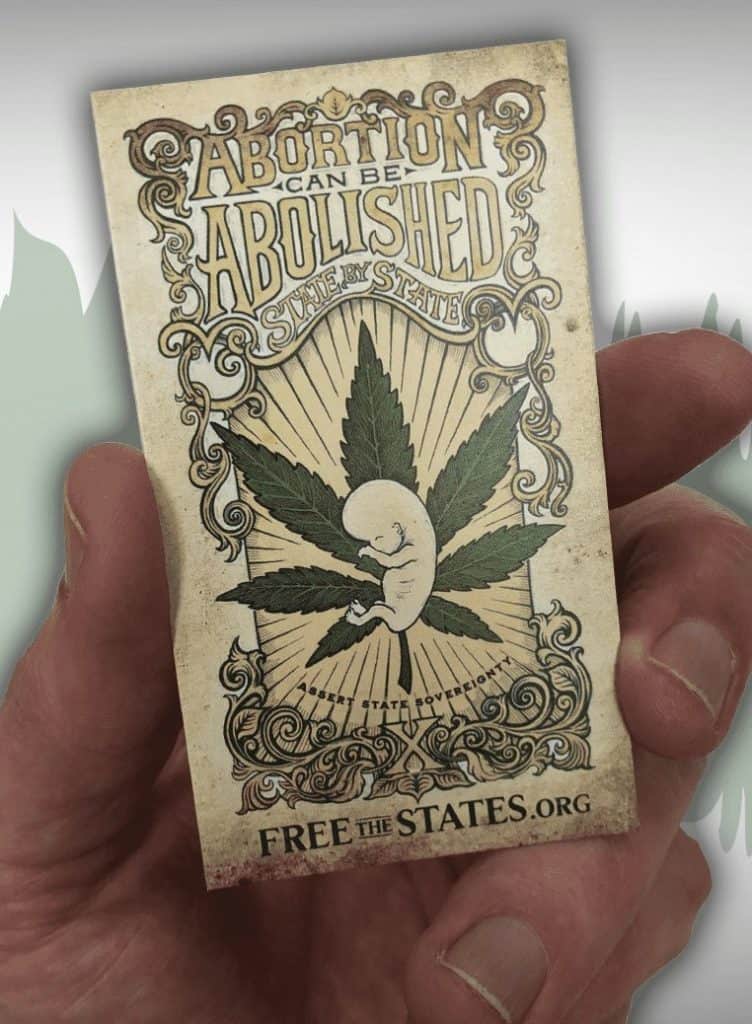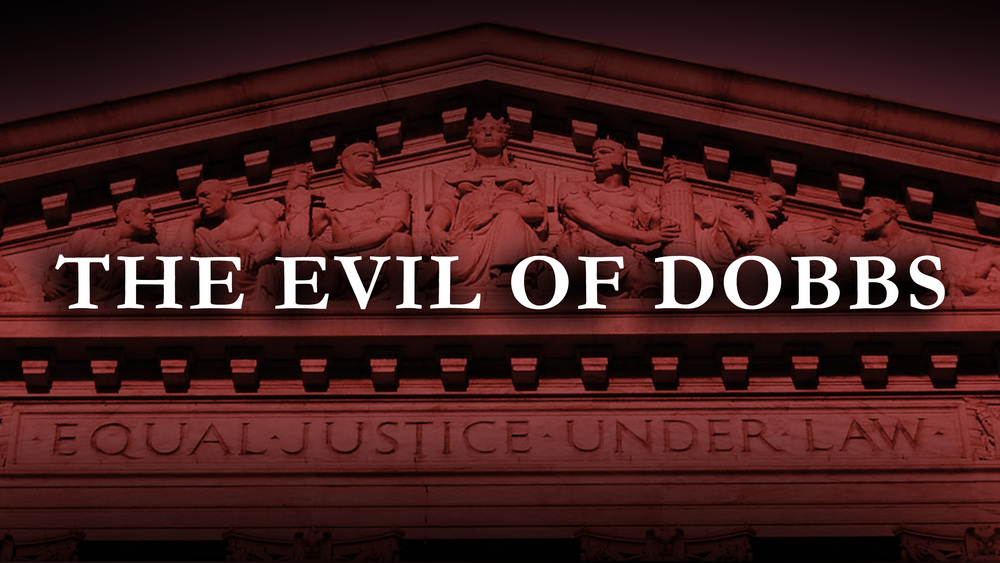Much ink has been spilled, or many pixels have been typed discussing and dissecting the Dobbs decision. The vast majority of the discourse has been either glowing praise of Dobbs or pro-abortion condemnation. But was Dobbs objectively good?
To answer that question, we need to define what role the supreme court plays.

Article III of the Constitution says, “The judicial power shall extend to all cases, in law and equity, arising under this Constitution.” They cannot just make things up. Their decisions must be constitutional or in line with federal law. They do not make law, they interpret law.
In the Dobbs decision, the 14th amendment was heavily discussed because it was supposedly where a right to abortion was granted under “liberty.” The court held that no such right was granted. Justice Alito in the majority opinion wrote, “It is time to heed the Constitution and return the issue of abortion to the people’s elected representatives.”
Far from being a return to the Constitution, it continued the same path of ignoring the Constitution. Not only does the 14th Amendment not protect abortion, it prohibits any state from allowing it. Sadly, both conservatives and liberals alike make arguments about what the word “person” means here, but the authorial intent of the writer of the 14th Amendment in writing “person” cannot be debated, as we will see below.

John A. Bingham, author of the 14th Amendment, wrote, “If a state has not the right to deny equal protection to any human being under the Constitution of this country in the rights of life, liberty, and property, how can state rights be impaired by penal prohibitions of such denial as proposed?” He further said, “No state in the union should deny to any human being… the equal protection of the laws.” For Bingham, the word “person” and “human being” were synonymous, or at least included human in the category of persons. Far from postmoderns who divorce the concept of a person from a human being as modern sexual revolutionaries do with the concept of “gender” and “sex,” (and indeed, as they do with “person” and “human”!) he rightly identified these words as synonyms. Bingham has this to say about abortion doctors, “Thousands of deaths annually occur from the attempts to procure abortion by quack doctors, known to be such, who nevertheless have not been restrained by law.” And asked the House of Representatives, “…to punish by fine and imprisonment any person who shall engage in the business of procuring abortion.”
Fundamentally, the Dobbs decision is a pro-choice decision. It finds no right to an abortion in the 14th Amendment (which was used to force states to allow it), but does assert there is no prohibition of it (allowing states to allow it).

When the Dobbs decision was made, we made two important arguments:
- Threats to SCOTUS’ power posed by abolition bills could be resolved by the court giving a compromise that would keep abortion legal.
- The Pro-Life Movement’s commitment to the second victim narrative would keep states from abolishing abortion, allowing abortion in any case as long as it was carried out by the woman herself.
Both of these factors work to delay abolition in any state.
You may say, “But the court allowing us to abolish it is a victory!” The obstacle posed by the court was not so great that an abolition bill in defiance of it would have kept a state from abolishing it. Thousands of laws defy the supreme court, but pro-life policymakers didn’t have the backbone to do it even though they did it with gun bills, and our own Republican lawmakers in Oklahoma did it for Marijuana. Defy for weed, but not for preborn babies.

Our greatest obstacle has always been the Pro-Life Movement. Our bills were killed before Dobbs and after Dobbs. The court was a convenient excuse, but they are committed to keeping abortion legal for the mother. Indeed, in many respects, it is easier to convince men to defy the enemy they recognize than it is to defy the friends they keep. The Pro-Life Movement provides cover for politicians and directs pro-life ire away from them. To defy them is to unshield oneself from the protection they give.
So in answer to whether Dobbs was “good,” both biblically and constitutionally, the answer is a resounding NO.
It denied equal protection and equal justice of the laws to preborn human beings, violating the 6th commandment and the 14th Amendment. There is no right to abortion in the Constitution, but there is a prohibition of abortion in the Constitution. Calling Dobbs good is tantamount to calling murder good. The court, like Pontius Pilate, washed its hands of its responsibility before God and under the Constitution and passed the responsibility on to state lawmakers. It had no right to do this. It is duty-bound to abolish abortion, and it failed to do so.
Beware of calling light darkness and darkness light. When we call something good, it must truly be good. It cannot be an evil masquerading as a good.
After 50 years of compromise, what has been won by the Pro-Life Movement is another compromise that has worked to keep abortion legal.
They got what they wanted in Dobbs.
The problem is that they did not want justice.

For more on the Dobbs decision, see this presentation from James Silberman: “Equal Protection and the Sin of Dobbs.”





